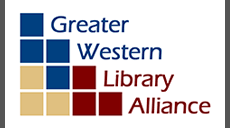Event Title
Quantifying an OER Program: Maintaining, Analyzing, and Reporting Data
Presentation type
Presentation
Start Date
1-8-2018 4:00 PM
End Date
1-8-2018 4:45 PM
Proposal Abstract
For many reasons, tracking and reporting data about OER grant programs is important; however, it is not always easy. This presentation will explore lessons learned and steps taken to improve data maintenance, analysis, and reporting methods in support of the OER grant program at the University of Oklahoma Libraries.
Currently in its 5th annual grant cycle, OU Libraries has awarded 75 Alternative Textbook Grants and has saved 18,000 OU students a cumulative amount in excess of $2M. Because the specific objective of this grant program is to reduce what students spend on course materials, it is essential that data be collected about participating classes in order to report on their savings and the progress of OU Libraries' OER grant program in general.
Since OU's OER grant program started, the spreadsheet used to track information about it has been growing and consequently has become difficult to analyze and glean useful information from. This fact has led OU Libraries to explore methods of analyzing its OER program that enable more robust analysis and more consistent reporting. For example, organizations and administrators regularly request reports about slices of data that need to be presented each in unique ways. To address this, we found that it is useful to be able to write queries, one for each type of request, that can be applied to our data time and again producing consistent reports and visualizations. Analyzing data in this way has revealed new ways of thinking about the program's impact, return on investment, the way grant applications are scored, and OU's OER initiative as a whole.
OU's OER grant programs depends on significant administrative support and few things are more important to maintaining that support than demonstrating impact and return on investment. Calculating these figures and communicating them consistently and effectively has proven to be important to the success of OU's OER efforts. This presentation is meant to start a conversation about ways in which the Open Education community can operate more effectively by sharing lessons learned and best practices about working with the data we use to guide our efforts.
Audience Type
OER program coordinators
Outcomes
Lessons learned during five years of reporting the savings of an OER grant program; Methods that the University of Oklahoma Libraries are exploring to better analyze and report on the progress of its OER initiative;
Recommended Citation
Taylor, Cody (2018). "Quantifying an OER Program: Maintaining, Analyzing, and Reporting Data," OER From Vision to Action.
Quantifying an OER Program: Maintaining, Analyzing, and Reporting Data
For many reasons, tracking and reporting data about OER grant programs is important; however, it is not always easy. This presentation will explore lessons learned and steps taken to improve data maintenance, analysis, and reporting methods in support of the OER grant program at the University of Oklahoma Libraries.
Currently in its 5th annual grant cycle, OU Libraries has awarded 75 Alternative Textbook Grants and has saved 18,000 OU students a cumulative amount in excess of $2M. Because the specific objective of this grant program is to reduce what students spend on course materials, it is essential that data be collected about participating classes in order to report on their savings and the progress of OU Libraries' OER grant program in general.
Since OU's OER grant program started, the spreadsheet used to track information about it has been growing and consequently has become difficult to analyze and glean useful information from. This fact has led OU Libraries to explore methods of analyzing its OER program that enable more robust analysis and more consistent reporting. For example, organizations and administrators regularly request reports about slices of data that need to be presented each in unique ways. To address this, we found that it is useful to be able to write queries, one for each type of request, that can be applied to our data time and again producing consistent reports and visualizations. Analyzing data in this way has revealed new ways of thinking about the program's impact, return on investment, the way grant applications are scored, and OU's OER initiative as a whole.
OU's OER grant programs depends on significant administrative support and few things are more important to maintaining that support than demonstrating impact and return on investment. Calculating these figures and communicating them consistently and effectively has proven to be important to the success of OU's OER efforts. This presentation is meant to start a conversation about ways in which the Open Education community can operate more effectively by sharing lessons learned and best practices about working with the data we use to guide our efforts.




